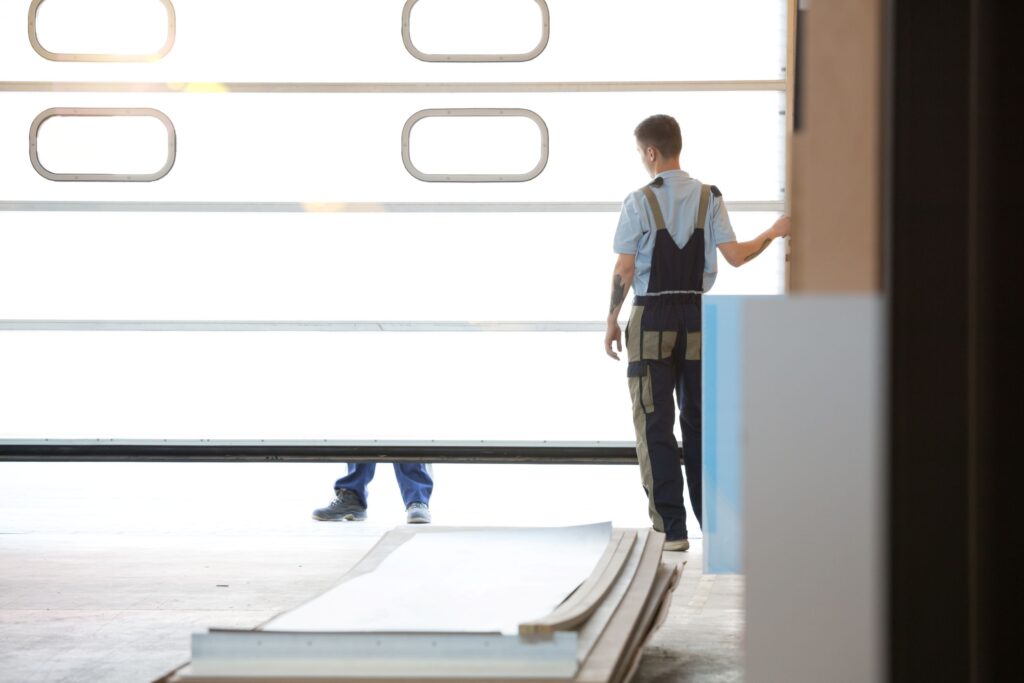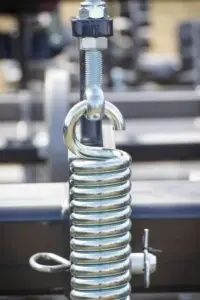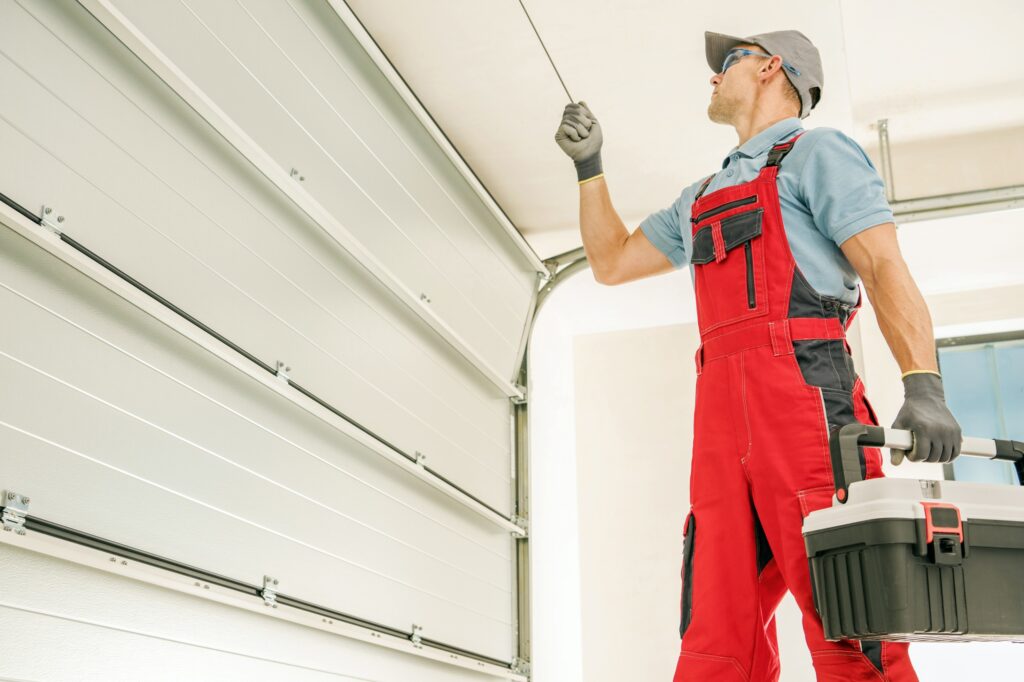Ah, summer in Katy, TX—where the sun doesn’t just warm your skin, it bakes your driveway, roasts your attic, and, yes, even overheats your garage door opener. If your garage door suddenly stops responding, moves sluggishly, or starts making strange noises when the mercury rises, you’re not alone. The brutal Texas summer can be a silent saboteur of garage electronics and motors alike.
In this article, we’ll explore how hot weather affects your garage door system, what signs to watch out for, and how to know if it’s time to schedule a garage door opener repair. We’ll even walk you through smart prevention strategies so you don’t get stuck sweating it out in your driveway.
How Heat Impacts Your Garage Door Opener
Let’s start with the science. Garage door openers are complex machines—packed with motors, circuit boards, sensors, and remotes—that don’t always play nice with high temps. When heat builds up in an unventilated garage, these components can begin to malfunction, overheat, or simply give up.
Key heat-sensitive parts include:
- Circuit Boards: These are the brains of your opener. Excessive heat can warp boards and fry wiring.
- Motors: Prolonged high temps can lead to an overheated garage door motor, reducing power and lifespan.
- Sensors: If your safety sensors warp or misalign due to heat expansion, the door may not close.
- Remote Batteries: Extreme temperatures can shorten battery life and cause issues with the garage remote.
It’s not just annoying—it’s a potential security concern if your garage opener won’t respond during a storm or power outage.
Katy’s Climate: Why It’s a Problem for Openers
If you’re wondering whether the summer heat in Katy is really that bad, let’s look at the numbers. Average highs can hover above 95°F for weeks on end, and garages—especially uninsulated ones—can climb well into the 110–120°F range.
Combine that with humidity, and you’ve got a recipe for garage opener issues.
Even garages with ventilation aren’t immune. Heat trapped in metal housing units, plastic casings, and electronic components can slowly degrade them over time. And when those hot days stack up? You might find your garage not opening, no matter how many times you hit the button.
Warning Signs That Your Opener Is Overheating

Your opener won’t wave a white flag, but it will give off some distress signals. Be on the lookout for:
1. Intermittent Operation
If your door works fine in the morning but struggles mid-afternoon, it could be due to a heat-affected garage opener cooling down overnight and then overheating again by midday.
2. Beeping or Flashing Lights
Some systems alert you when something’s wrong. If your wall panel is blinking red or beeping in a new pattern, it could be an opener overheating sign.
3. Delayed or Sluggish Movement
If your door hesitates, jerks, or stops mid-cycle, don’t ignore it. The temperature and garage motors don’t mix well when the heat becomes excessive.
Why Ignoring Summer Opener Issues Isn’t Worth It
You might think it’s just a “summer thing” that will resolve itself when the temps drop. Spoiler alert: it won’t. Here’s what happens when you don’t handle opener problems early:
- Motor Failure: The most expensive repair on your opener.
- Safety Risk: Doors may open or close unpredictably.
- Permanent Damage: Circuit boards aren’t designed for repeat overheating.
- Higher Energy Use: Weak openers may pull more power to compensate for poor performance.
Delaying garage door opener repairs could mean replacing the whole system instead of fixing a minor issue.
When to Call for Garage Door Opener Repair
If you’re experiencing one or more of the symptoms above—especially consistently—you should contact a technician. Reputable services offer opener repair cost estimates and diagnostics that can pinpoint the problem quickly.
Here’s what a tech will likely check:
- Voltage readings from the motor
- Circuit board integrity
- Alignment and performance of sensors
- Battery voltage from remotes/keypads
- Whether firmware or internal components have been heat-damaged
This helps determine whether a quick fix or a total unit replacement is in order.
How to Prevent Opener Issues During Katy’s Summer
Good news: most of these problems are avoidable. Here’s what you can do to prep your garage door for the Texas heatwave:
1. Add Insulation to Your Garage
A well-insulated garage regulates temperature better, helping to avoid garage opener failure.
2. Install a Ventilation Fan
Proper air circulation keeps hot air moving and can significantly reduce component stress.
3. Use a Surge Protector
Summer storms = lightning = power surges. Don’t let a bolt fry your opener’s brain.
4. Limit Use During Peak Heat
If possible, avoid using the door during 2–6 PM when the garage is hottest.
5. Schedule Preventative Maintenance
Annual tune-ups ensure early detection of sensor malfunction in heat and overheating risks.
Comparing Katy Heat Damage to Other Common Opener Failures
| Failure Type | Cause | Prevention Option |
|---|---|---|
| Summer Overheating | Heat buildup in motor/circuit board | Insulation & ventilation |
| Sensor Misalignment | Heat warping brackets or lenses | Shade & secure mounting |
| Remote Failure | Battery drain in heat | Replace batteries often |
| Delayed Door Movement | Motor stress from heat | Summer maintenance check |
By understanding which opener issues are summer garage opener issues, you can take the right steps at the right time.
How to Choose the Right Opener for Texas Weather
If your opener is already several years old or not responding well to heat, it may be time for an upgrade. When selecting a new model, consider:
- High heat tolerance components
- Smart connectivity with scheduling features
- Quiet belt-drive options that generate less internal friction
- Durable casing that resists expansion/warping
Brands like LiftMaster and Chamberlain offer models designed for hot climates.
Don’t Let Summer Shut You Out

If your garage door opener is showing signs of distress in Katy’s unforgiving summer heat, don’t wait until it completely stops working. Whether it’s a quick fix or a full upgrade, Houston Garage Door Repair can get your system back on track with expert diagnostics, fast service, and smart upgrade options that future-proof your garage.
Frequently Asked Questions
Will insulating your garage help prevent opener problems?
Absolutely! Insulation helps regulate the temperature inside your garage, minimizing heat stress on motors and circuit boards. It also protects your stored items, reduces noise, and improves energy efficiency in adjacent rooms. It’s a smart investment, especially in Katy, where garage temps soar in the summer.
Can you use a cooling fan directly on the opener?
You can, but only if it’s done safely. Some homeowners install small directional fans aimed at the opener motor or mount a ceiling fan nearby. Just make sure airflow doesn’t blow dust or debris into sensors or moving parts, and avoid pointing fans at control panels or wiring.
Coming Up Next:
Garage Door Opener Repair: Busted Sensors or a Busted Opener
Not sure if your opener’s acting up or your sensors are just out of whack? Don’t miss our next guide where we walk you through the key differences and how to fix them fast!






